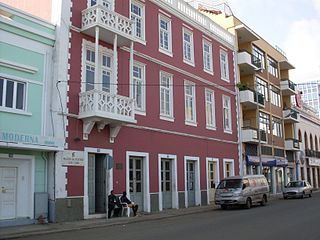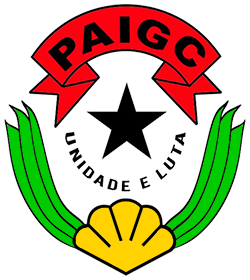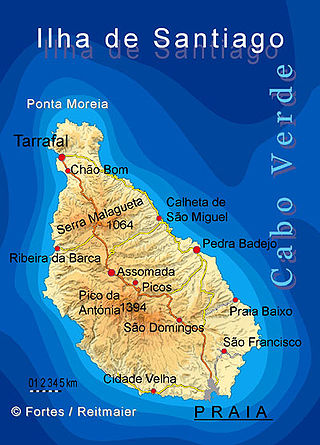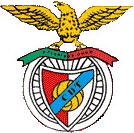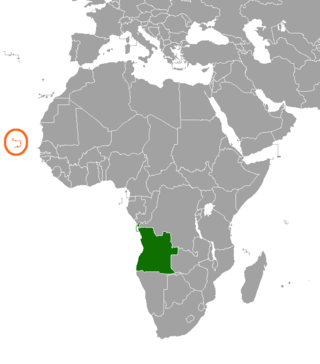| Tenure | Incumbent | Notes |
|---|
| Portuguese suzerainty |
| 1462 | Portuguese settlement |
| Corregedor (Magistrates) |
| 1481 to ???? | Pêro Lourenço , Corregedor | |
| ???? to 1517 | Pêro de Guimarães , Corregedor | |
| 1517 to 1521 | João Alemão , Corregedor | |
| 1521 to 1527 | Leonis Correia , Corregedor | |
| 28 August 1527 to 1534 | Gaspar Correia , Corregedor | |
| 1534 to 1536 | Estêvão de Lagos , Corregedor | |
| 1536 to 1541 | André Feio , Corregedor | |
| 1539 to 1541 | Simão Afonso , Corregedor | |
| 1541 to 1544 | Pêro Moniz , Corregedor | |
| 1544 to 1547 | António Ferreira , Corregedor | |
| 1547 to 1550 | Pêro de Araujo , Corregedor | |
| 1550 to 1556 | Jorge Pimentel , Corregedor | |
| 1556 to 1559 | Manuel de Andrade , Corregedor | |
| 1559 to 1560 | Luís Martins de Evangelho , Corregedor | |
| 1560 to 1562 | Gregório Martins Caminha , Corregedor | |
| 1562 to 1571 | Bernardo de Alpoim , Corregedor | |
| 1571 to 1577 | António Velho Tinoco , Corregedor | |
| 1577 to 1579 | Cristóvão Soares de Mello , Corregedor | |
| 1579 to 1584 | Diogo Dias Magro , Corregedor | |
| 1584 to 1588 | Gaspar de Andrade , Corregedor | |
| 1588 to 1588 | Amador Gomes Raposo , Corregedor | |
| Governors |
| 1588 to 1591 | Duarte Lobo da Gama , Governor | |
| 1591 to 1595 | Brás Soares de Melo , Governor | |
| 1597 to 1603 | Fancisco Lobo da Gama , Governor | |
| 1603 to 1606 | Fernão de Mesquita de Brito , Governor | |
| 1606 to 1611 | Francisco Correia da Silva , Governor | |
| 1611 to 1614 | Francisco Martins de Sequeira , Governor | |
| 1614 to 1618 | Nicolau de Castilho , Governor | |
| 1618 to 1622 | Francisco de Moura , Governor | |
| 1622 to 1622 | Francisco de Moura Rolim , Governor | |
| 1622 to 1624 | Manuel Afonso de Guerra , acting Governor | |
| 1624 to 1628 | Francisco de Vasconcelos da Cunha , Governor | |
| 1628 to 1632 | João Pereira Corte-Real , Governor | |
| 1632 to 1636 | Cristóvão de Cabral , Governor | |
| 1636 to 1639 | Jorge de Castilho , Governor | |
| 1639 to 1640 | Jerónimo de Cavalcanti e Albuquerque , Governor | |
| 1640 to 1645 | João Serrão da Cunha , Governor | |
| 1645 to 1646 | Lourenço Garro , Governor | |
| 1646 to 1648 | Jorge de Araújo , Governor | |
| 1648 to 1648 | Roque de Barros do Rêgo , Governor | |
| 1648 to 1649 | Council of Government | |
| 12 June 1649 to 9 October 1650 | Gonçalo de Gamboa Ayala , Governor | |
| 1650 to 1651 | Pedro Semedo Cardoso , Governor | |
| 1651 to 1653 | Jorge de Mesquita Castelo Branco , Governor | |
| 1563 to 1658 | Pedro Ferreira Barreto , Governor | |
| 1558 to 1663 | Francisco de Figueroa , Governor | |
| 1663 to 1667 | Antõnio Galvao , Governor | |
| 1667 to 1671 | Manuel da Costa Pessoa , Governor | 1st Term |
| 1671 to 1676 | Manuel Pacheco de Melo , Governor | |
| 30 April 1676 to 1676 | João Cardoso Pássaro , Governor | |
| 1676 to 1678 | Council of Government | |
| 15 March 1678 to 1683 | Manuel da Costa Pessoa , Governor | 2nd Term |
| 1681 to 1687 | Inácio de Franca Barbosa , Governor | |
| 1687 to 1688 | Veríssimo Carvalho da Costa , Governor | |
| 1688 to 1690 | Vitoriano da Costa , Governor | |
| 1690 to 1691 | Digo Ramires Esquível , Governor | |
| 1691 to 1692 | Council of Government | |
| 1692 to 1696 | Manuel António Pinheiro da Câmara , Governor | |
| 1696 to 7 June 1696 | António Gomes Mena , Governor | |
| 1696 to 1698 | Council of Government | |
| 4 November 1698 to 1702 | António Salgado , Governor | |
| 10 February 1702 to 1702 | Jorge Cotrim de Mello , Governor | |
| 12 April 1702 to 1707 | Gonçalo de Lemos Mascarenhas , Governor | |
| 11 May 1707 to 1710 | Rodrigo de Oliveira da Fonseca , Governor | |
| 12 February 1710 to 1715 | José Pinheiro da Câmara , Governor | |
| 27 March 1715 to 20 June 1715 | Manuel Pereira Calheiros e Araújo , Governor | |
| 16 December 1715 to 1719 | Serafim Teixeira Sarmento de Sá , Governor | |
| 9 April 1719 to 1720 | Balthasar de Sousa Coutinho , Governor | |
| 11 March 1720 to 4 January 1725 | António Vieira , Governor | |
| 24 January 1726 to 1728 | Francisco Miguel da Nóbrega Vasconcelos , Governor | |
| 10 July 1728 to 1733 | Francisco de Oliveira Grans , Governor | |
| 1733 to 1737 | Bento Gomes Coelho , Governor | |
| 1 May 1736 to 7 August 1738 | José da Fonseca Barbosa , Governor | |
| 1738 to 1741 | Chamber Senate | |
| 10 June 1741 to 1751 | João Zuzarte de Santa Maria , Governor | |
| 6 March 1751 to 1751 | António José d'Eça e Faria , Governor | |
| 1752 to 1756 | Luís António da Cunha d'Eça , Governor | |
| 1756 to 1761 | Manuel António de Sousa e Meneses , Governor | |
| 5 March 1761 to 1761 | Marcelino Pereira de Ávila , Governor | |
| 1761 to 1764 | António de Barros Bezerra , Governor | |
| 1764 to 1766 | Bartolomeu de Sousa de Brito Tigre , Governor | |
| 1766 to 1767 | João Jácome de Brito Barena Henriques , Governor | |
| 25 November 1768 to 1777 | Joaquim Salema Saldanha Lobo , Governor | |
| 1777 to 1781 | António do Vale de Sousa e Meneses , Governor | |
| 19 February 1781 to 1782 | Duarte de Melo da Silva Castro de Almeida , Governor | |
| 1782 to 1783 | Francisco de São Simão , acting Governor | |
| 23 August 1784 to 1789 | António Machado de Faria e Maia , Governor | |
| 2 April 1789 to 1793 | Francisco José Teixeira Carneiro , Governor | |
| 27 September 1793 to 10 September 1795 | José da Silva Maldonado d'Eça , Governor | |
| 3 August 1796 to 29 November 1802 | Marcelino António Bastos , Governor | |
| 12 May 1803 to 1818 | António Coutinho de Lencastre , Governor | |
| 6 February 1818 to 1822 | António Pusich , Governor | |
| 9 May 1822 to 1826 | João da Matta Chapuzet , Governor | |
| 7 September 1826 to 1830 | Caetano Procópio Godinho de Vasconcelos , Governor | |
| 1830 to 1831 | Duarte da Costa e Sousa de Macedo , Governor | |
| 1831 to 1834 | José Coutinho de Lencastre , Governor | |
| 1834 to 1835 | Manuel António Martins , Governor | |
| 1835 to 1836 | Joaquim Pereira Marinho , Governor | 1st Term |
| 1836 to 1837 | Domingos Correia Arouca , Governor | |
| 1837 to 1839 | Joaquim Pereira Marinho , Governor | 2nd Term |
| 1839 to 1842 | João de Fontes Pereira de Melo , Governor | 1st Term |
| 5 April 1842 to 1845 | Francisco de Paula Bastos , Governor | |
| 26 June 1845 to 1847 | José Miguel de Noronha , Governor | |
| 28 July 1847 to 1851 | João de Fontes Pereira de Melo , Governor | 2nd Term |
| 25 June 1851 to 1854 | Fortunato José Barreiros , Governor | |
| 6 April 1854 to 1857 | António Maria Barreiros Arrobas , Governor | |
| 25 November 1857 to 1860 | Sebastião Lopes de Calheiros Meneses , Governor | |
| 1860 to 1860 | Januário Correia de Almeida , Governor | |
| 6 September 1860 to 1863 | Carlos Joaquim Franco , Governor | |
| 1863 to 1869 | José Guedes de Carvalho e Meneses , Governor | |
| 29 March 1869 to 26 February 1876 | Caetano Alexandre de Almeida e Albuquerque , Governor | Some sources stated that he began his term on 11 February 1869 |
| 1877 to 1877 | G.C. Lopes de Macedo , Governor | |
| 1878 to 1878 | Vasco Guedes de Carvalho e Meneses , Governor | |
| 1879 to 1881 | António de Nascimento Pereira de Sampaio , Governor | |
| 1882 to 1886 | João Paes de Vasconcellos , Governor | |
| 1887 to 1889 | João Cesário de Lacerda , Governor | 1st Term |
| 1890 to 1890 | Augusto Cesário Carlos de Carvalho , Governor | |
| 1891 to 1893 | José Guedes Brandão de Melo , Governor | 1st Term |
| 1893 to 1894 | Fernando de Magalhães e Menezes , Governor | |
| 1893 to 1896 | José Guedes Brandão de Melo , Governor | 2nd Term |
| 1897 to 1897 | Alexandre Alberto da Rocha de Serpa Pinto , Governor | |
| 1898 to 1900 | João Cesário de Lacerda , Governor | 2nd Term |
| 1901 to 1902 | Arnaldo de Novalis Guedes de Rebelo , Governor | |
| 1902 to 1903 | Francisco de Paula Cid , Governor | |
| 1903 to 1904 | António Alfredo Barjona de Freitas , Governor | |
| 1905 to 1907 | Amâncio Alpoim de Cerqueira Borges Cabral , Governor | |
| 1907 to 1909 | Bernardo António da Costa de Macedo , Governor | |
| 1909 to 1910 | Martinho Pinto de Queirós Montenegro , Governor | |
| 1910 to 1911 | António de Macedo Ramalho Ortigão , Governor | |
| 1911 to 1911 | Artur Marinha de Campos , Governor | |
| 1911 to 1915 | Joaquím Pedro Vieira Índice Bicker , Governor | |
| 1915 to 1918 | Abel Fontoura da Costa , Governor | |
| 1918 to 1919 | Teófilo Duarte , Governor | |
| 1919 to 1921 | Manuel Firmino de Almeida da Maia Magalhães , Governor | |
| 1921 to 1922 | Filipe Carlos Dias de Carvalho , Governor | |
| 1924 to 1926 | Júlio Henriques d'Abreu , Governor | |
| 1927 to 1927 | João de Almeida , Governor | |
| 1927 to 1931 | António Álvares Guedes Vaz , Governor | |
| 1931 to 1941 | Amadeu Gomes de Figueiredo , Governor | |
| 1941 to 1943 | José Diogo Ferreira Martins , Governor | |
| 1943 to 1949 | João de Figueiredo , Governor | |
| 1950 to 1953 | Carlos Alberto Garcia Alves Roçadas , Governor | |
| 1953 to 1957 | Manuel Marques de Abrantes Amaral , Governor | |
| 1957 to 1958 | António Augusto Peixoto Correia , acting Governor | |
| 1958 to 1962 | Silvino Silvério Marques , Governor | |
| 1963 to 1969 | Leão Maria Tavares Rosado do Sacramento Monteiro , Governor | |
| 13 March 1969 to 1974 | António Lopes dos Santos , Governor | |
| March 1974 to 25 April 1974 | Basílio Pina de Oliveira Seguro , Governor | |
| May 1974 to July 1974 | Sérgio Fonseca , Governor | |
| 6 August 1974 to 21 September 1974 | Henrique da Silva Horta , Governor | |
| 21 September 1974 to 30 December 1974 | Vicente Almeida d'Eça , Governor | |
| 30 December 1974 to 5 July 1975 | Vicente Almeida d'Eça , High Commissioner | |
| 5 July 1975 | Independence as Republic of Cape Verde |





